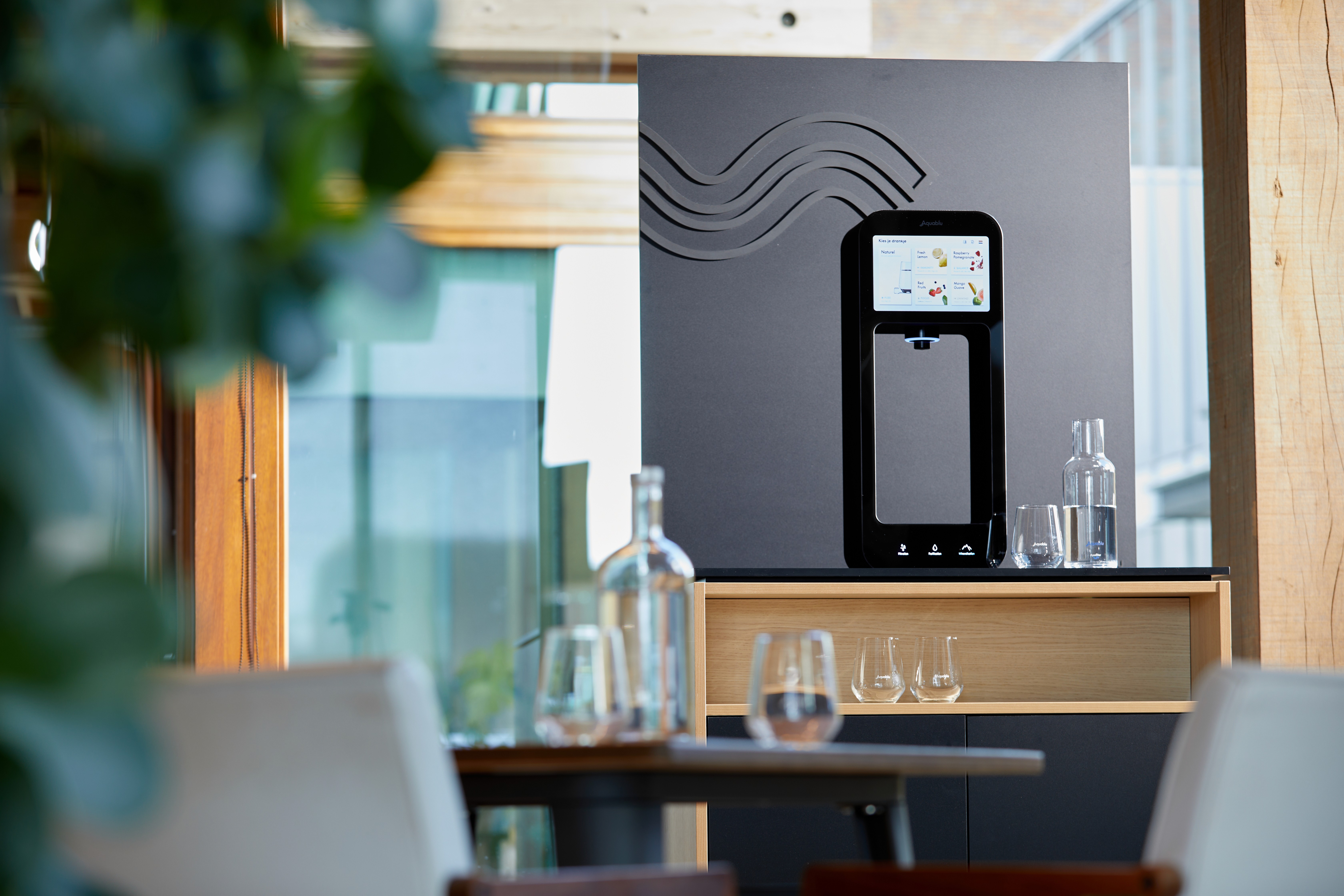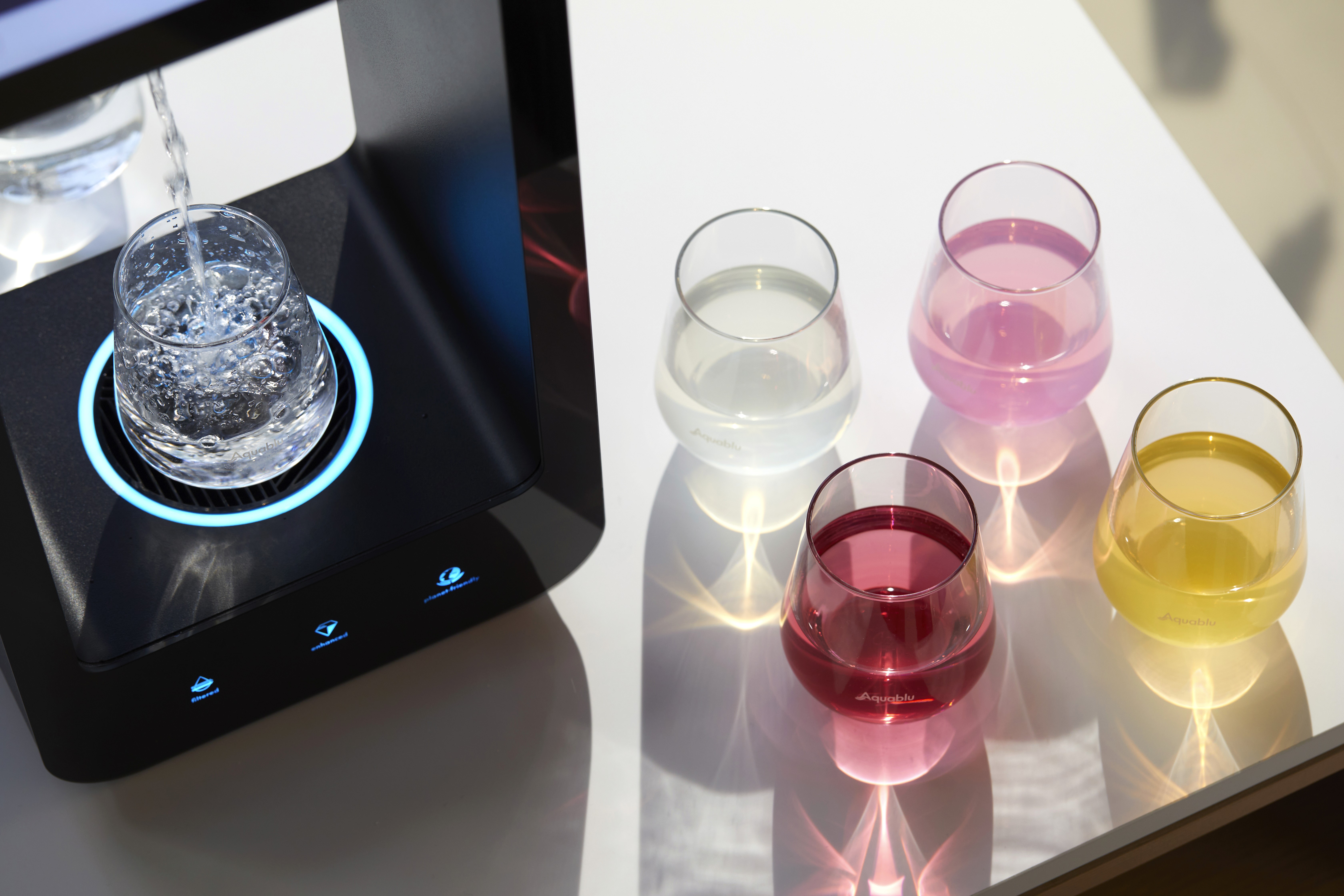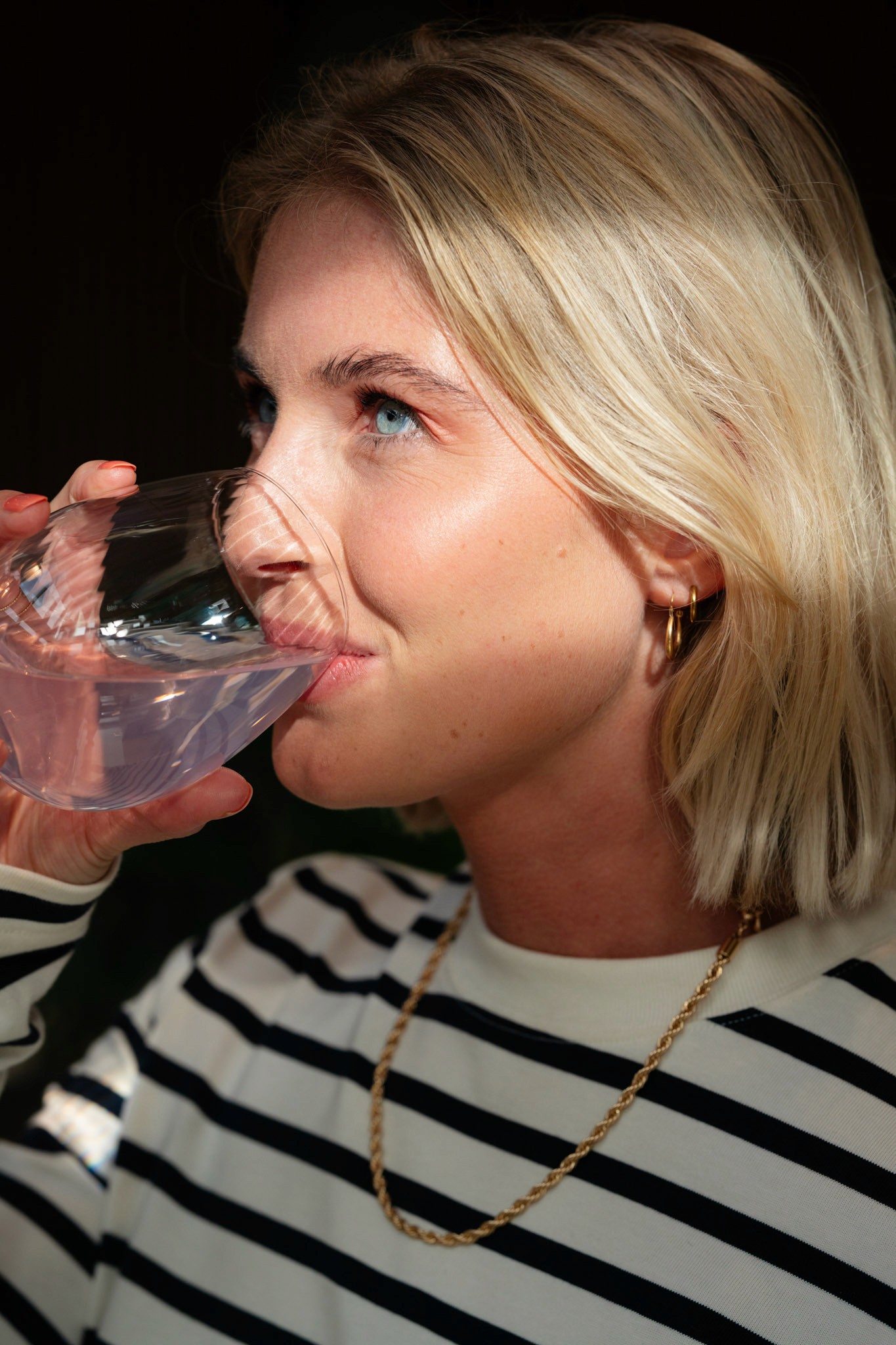Deposit on cans and bottles in Belgium
Deposit on cans and bottles in Belgium
4 min
4 min
4 min
|
|
|
4 min
|
Share Article
Share Article
Share Article
Share Article


Previously, we wrote about the Dutch government introducing a deposit for all cans and small bottles in the Netherlands in an attempt to reduce our litter and pollution footprint. Now, Belgium is also in. Flanders, Wallonia, and Brussels have agreed to introduce a deposit on cans and bottles starting from 2025. The exact amount for the deposit has yet to be determined, but it’s possible that people in Belgium will receive 10 to 25 cents for each small bottle or can.
WHAT'S THE DEPOSIT OF CANS AND SMALL BOTTLES ABOUT?
The deposit on cans and small bottles is all about minimizing our footprint and reducing our single-use waste. Waste and microplastics that end up in our nature and even our bodies in the form of microplastics.
For Belgium, the big amount of waste and small amount of recycling are two very important topics. The average production of municipal waste in Belgium per capita was 779.4 kg in 2021. Only 31% of the 8,979,881 tonnes of the collected waste was recycled in 2021.
REDUCE LITTER BY 20%
The goal is clear: Flanders wants the sector to reduce litter by 20% in comparison to 2015. This target was set to be achieved before the end of 2023. However, recent statistics from OVAM show that the sector is not going to meet this target. Compared to 2015, there is now a decrease in litter by only 11%, and illegal dumping has increased by 27%. Hence, it is time for the inevitable next step, according to Zuhal Demir, the Flemish Minister for Justice and Enforcement.
Everyone benefits from less litter and a deposit system, both people and nature. Taxpayers currently pay a total of 150 million euros a year for cleaning costs. With less litter, there is less cleaning. And with less litter and single-use plastics in nature, we can hope to have more fish then plastics in our oceans by the end of 2050. Everyone happy!
"We have to take the inevitable next step to meet our goal. The negotiations, preparation of such a deposit system and regulations will still take time, but one thing is certain: it will come.”
- Demir
Previously, we wrote about the Dutch government introducing a deposit for all cans and small bottles in the Netherlands in an attempt to reduce our litter and pollution footprint. Now, Belgium is also in. Flanders, Wallonia, and Brussels have agreed to introduce a deposit on cans and bottles starting from 2025. The exact amount for the deposit has yet to be determined, but it’s possible that people in Belgium will receive 10 to 25 cents for each small bottle or can.
WHAT'S THE DEPOSIT OF CANS AND SMALL BOTTLES ABOUT?
The deposit on cans and small bottles is all about minimizing our footprint and reducing our single-use waste. Waste and microplastics that end up in our nature and even our bodies in the form of microplastics.
For Belgium, the big amount of waste and small amount of recycling are two very important topics. The average production of municipal waste in Belgium per capita was 779.4 kg in 2021. Only 31% of the 8,979,881 tonnes of the collected waste was recycled in 2021.
REDUCE LITTER BY 20%
The goal is clear: Flanders wants the sector to reduce litter by 20% in comparison to 2015. This target was set to be achieved before the end of 2023. However, recent statistics from OVAM show that the sector is not going to meet this target. Compared to 2015, there is now a decrease in litter by only 11%, and illegal dumping has increased by 27%. Hence, it is time for the inevitable next step, according to Zuhal Demir, the Flemish Minister for Justice and Enforcement.
Everyone benefits from less litter and a deposit system, both people and nature. Taxpayers currently pay a total of 150 million euros a year for cleaning costs. With less litter, there is less cleaning. And with less litter and single-use plastics in nature, we can hope to have more fish then plastics in our oceans by the end of 2050. Everyone happy!
"We have to take the inevitable next step to meet our goal. The negotiations, preparation of such a deposit system and regulations will still take time, but one thing is certain: it will come.”
- Demir
Previously, we wrote about the Dutch government introducing a deposit for all cans and small bottles in the Netherlands in an attempt to reduce our litter and pollution footprint. Now, Belgium is also in. Flanders, Wallonia, and Brussels have agreed to introduce a deposit on cans and bottles starting from 2025. The exact amount for the deposit has yet to be determined, but it’s possible that people in Belgium will receive 10 to 25 cents for each small bottle or can.
WHAT'S THE DEPOSIT OF CANS AND SMALL BOTTLES ABOUT?
The deposit on cans and small bottles is all about minimizing our footprint and reducing our single-use waste. Waste and microplastics that end up in our nature and even our bodies in the form of microplastics.
For Belgium, the big amount of waste and small amount of recycling are two very important topics. The average production of municipal waste in Belgium per capita was 779.4 kg in 2021. Only 31% of the 8,979,881 tonnes of the collected waste was recycled in 2021.
REDUCE LITTER BY 20%
The goal is clear: Flanders wants the sector to reduce litter by 20% in comparison to 2015. This target was set to be achieved before the end of 2023. However, recent statistics from OVAM show that the sector is not going to meet this target. Compared to 2015, there is now a decrease in litter by only 11%, and illegal dumping has increased by 27%. Hence, it is time for the inevitable next step, according to Zuhal Demir, the Flemish Minister for Justice and Enforcement.
Everyone benefits from less litter and a deposit system, both people and nature. Taxpayers currently pay a total of 150 million euros a year for cleaning costs. With less litter, there is less cleaning. And with less litter and single-use plastics in nature, we can hope to have more fish then plastics in our oceans by the end of 2050. Everyone happy!
"We have to take the inevitable next step to meet our goal. The negotiations, preparation of such a deposit system and regulations will still take time, but one thing is certain: it will come.”
- Demir






SYSTEM SCOPE AND FUTURE EXPANSION
The deposit will apply to plastic bottles (small ones and up to 3-liter bottles) and metal drink beverage packaging like soda cans. Later, it will be decided if glass and beverage cartons will be added.
An alternative deposit system might be devised because the current system is not compatible with the collection of deposit bottles and cans and pilot experiments are in place.
POSITIVE IMPACT OF RECYCLING
Implementing the deposit system is expected to significantly reduce litter and increase recycling rates, contributing to a more sustainable environment. By incentivizing consumers to return containers, Belgium can reduce the environmental impact of single-use plastics and metals, promote a circular economy, and improve public cleanliness. Successful deposit systems in other countries have demonstrated reductions in beverage packaging litter by up to 90%, highlighting the potential benefits for Belgium.
For more detailed updates, you can visit the [Brussels Times article]
ZERO PACKAGING, ZERO WASTE
Looking for a solution to the litter problem? Why recycle if you can refill? We have the solution for companies and retailers. Our smart water dispensers the perfect (healthy!) solution to packaged beverages. The water tap offers 39 personalized healthy drinks with extra vitamins and minerals to boost your day.
SYSTEM SCOPE AND FUTURE EXPANSION
The deposit will apply to plastic bottles (small ones and up to 3-liter bottles) and metal drink beverage packaging like soda cans. Later, it will be decided if glass and beverage cartons will be added.
An alternative deposit system might be devised because the current system is not compatible with the collection of deposit bottles and cans and pilot experiments are in place.
POSITIVE IMPACT OF RECYCLING
Implementing the deposit system is expected to significantly reduce litter and increase recycling rates, contributing to a more sustainable environment. By incentivizing consumers to return containers, Belgium can reduce the environmental impact of single-use plastics and metals, promote a circular economy, and improve public cleanliness. Successful deposit systems in other countries have demonstrated reductions in beverage packaging litter by up to 90%, highlighting the potential benefits for Belgium.
For more detailed updates, you can visit the [Brussels Times article]
ZERO PACKAGING, ZERO WASTE
Looking for a solution to the litter problem? Why recycle if you can refill? We have the solution for companies and retailers. Our smart water dispensers the perfect (healthy!) solution to packaged beverages. The water tap offers 39 personalized healthy drinks with extra vitamins and minerals to boost your day.
SYSTEM SCOPE AND FUTURE EXPANSION
The deposit will apply to plastic bottles (small ones and up to 3-liter bottles) and metal drink beverage packaging like soda cans. Later, it will be decided if glass and beverage cartons will be added.
An alternative deposit system might be devised because the current system is not compatible with the collection of deposit bottles and cans and pilot experiments are in place.
POSITIVE IMPACT OF RECYCLING
Implementing the deposit system is expected to significantly reduce litter and increase recycling rates, contributing to a more sustainable environment. By incentivizing consumers to return containers, Belgium can reduce the environmental impact of single-use plastics and metals, promote a circular economy, and improve public cleanliness. Successful deposit systems in other countries have demonstrated reductions in beverage packaging litter by up to 90%, highlighting the potential benefits for Belgium.
For more detailed updates, you can visit the [Brussels Times article]
ZERO PACKAGING, ZERO WASTE
Looking for a solution to the litter problem? Why recycle if you can refill? We have the solution for companies and retailers. Our smart water dispensers the perfect (healthy!) solution to packaged beverages. The water tap offers 39 personalized healthy drinks with extra vitamins and minerals to boost your day.
SYSTEM SCOPE AND FUTURE EXPANSION
The deposit will apply to plastic bottles (small ones and up to 3-liter bottles) and metal drink beverage packaging like soda cans. Later, it will be decided if glass and beverage cartons will be added.
An alternative deposit system might be devised because the current system is not compatible with the collection of deposit bottles and cans and pilot experiments are in place.
POSITIVE IMPACT OF RECYCLING
Implementing the deposit system is expected to significantly reduce litter and increase recycling rates, contributing to a more sustainable environment. By incentivizing consumers to return containers, Belgium can reduce the environmental impact of single-use plastics and metals, promote a circular economy, and improve public cleanliness. Successful deposit systems in other countries have demonstrated reductions in beverage packaging litter by up to 90%, highlighting the potential benefits for Belgium.
For more detailed updates, you can visit the [Brussels Times article]
ZERO PACKAGING, ZERO WASTE
Looking for a solution to the litter problem? Why recycle if you can refill? We have the solution for companies and retailers. Our smart water dispensers the perfect (healthy!) solution to packaged beverages. The water tap offers 39 personalized healthy drinks with extra vitamins and minerals to boost your day.
by
Aquablu
/
Share Article
Share Article
Share Article
Share Article
SUBSCRIBE
TO OUR
Don’t miss out—stay ahead of the wave with new flavors and product launches.
NEWSLETTER
SUBSCRIBE
TO OUR
NEWSLETTER
Don’t miss out—stay ahead of the wave with new flavors and product launches.
SUBSCRIBE
TO OUR
NEWSLETTER
Don’t miss out—stay ahead of the wave with new flavors and product launches.
SUBSCRIBE
TO OUR
Don’t miss out—stay ahead of the wave with new flavors and product launches.
NEWSLETTER
SUBSCRIBE
TO OUR
Don’t miss out—stay ahead of the wave with new flavors and product launches.